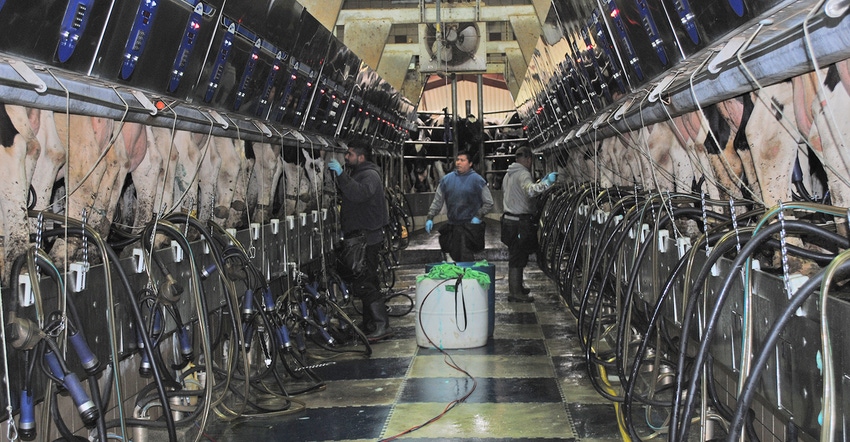September 29, 2017

By Trisha Wagner
One of the most common questions or concerns farmers have with regard to employees today has to do with recruiting and retaining employees in the current labor market: “I can’t afford to pay more.
How can I compete with other industries for employees? How can I keep my current employees in this labor market?”
Many employers think people leave or stay at a job because of the pay. However, surveys indicate more than 80% of employees leave or remain at a job for reasons other than pay. Research tells us that we, as humans, are motivated not simply by material possession, but also by the inherent enjoyment and meaning that our actions bring us.
So, how can farmers use this information to create a work environment that attracts and retains employees?
Share your passion
You’ve heard: “Employees take a job because they need to, but stay with a job because they want to.” As the employer, you are the leader of the business. By definition, a leader has followers. If you are a successful leader, your employees follow because they want to — not just because they have to. This is true followership. To achieve this, the leader and employees must share a vision and values for the business. In doing so, the employees feel they relate to the overall goals of the business, and their work has purpose and is meaningful.
We can all think of that employer who is considered a leader among industries, an “employer of choice.” They are the employers who may post a “help wanted” ad, but chances are they are sifting through a stack of applicants waiting to start work, and their turnover is a fraction of the industry average. They have the respect of their employees and beyond. They have clearly defined and communicated with their employees, and even consumers, the vision and values of the business — and they live these every day.
Not convinced your farm can become such an employer of choice? Not sure what your vision or values are yet, let alone how to communicate them to employees? Let’s take yourself as a farmer as a case in point.
Why do you farm? What makes you get up in the morning even when commodity prices are low, again, for another year? Is it really just about making money for a loan payment or a new truck? If that were the case, you could probably succeed in another career. Is it your connection to the land? Is it the ability to make your own decisions that affect your business? Maybe you are proud to be producing food for families to eat. Or is it about taking pride in sustaining a successful business? Is it something about being part of an agricultural community that matters to you?
You hold the meaning for working every day. It may take some time to think and reflect on the real value of the work you do and why you do it. One reason it’s challenging to put this into words is because the meaning comes from feelings or emotions, and emotions are not always easily translated into words. There is a scientific explanation for this — our brains have evolved to react quickly without thinking, from the gut, especially as a self-defense mechanism. Hence, communicating emotions through speech is a relatively new thing for our brains. Knowing this can be helpful when working with employees. After all, they are people too, and they feel their work is meaningful if they have an emotional connection to their job, as well.
Some agricultural sectors have done this better than others. Many companies today convey a message of social or environmental justice, as it speaks to the feelings or emotions of consumers. What is the message for commercial agriculture? There has been a lot of negative or defensive messaging in recent years; will this create followership? Here’s an example of a positive emotional message: “On our farm, we sustainably produce wholesome, healthy food for everyone to enjoy.”
Successful employers convey a strong vision and values, and live them every day. What is your vision for your business? What motivates you to farm? Share your passion with your team. Doing so will increase followership for your business.
For more information on leadership skills development, contact the University of Wisconsin Extension human resource management workgroup.
Wagner is the Jackson County Extension agriculture agent. This column is provided by the University of Wisconsin Extension Dairy Team.
You May Also Like




